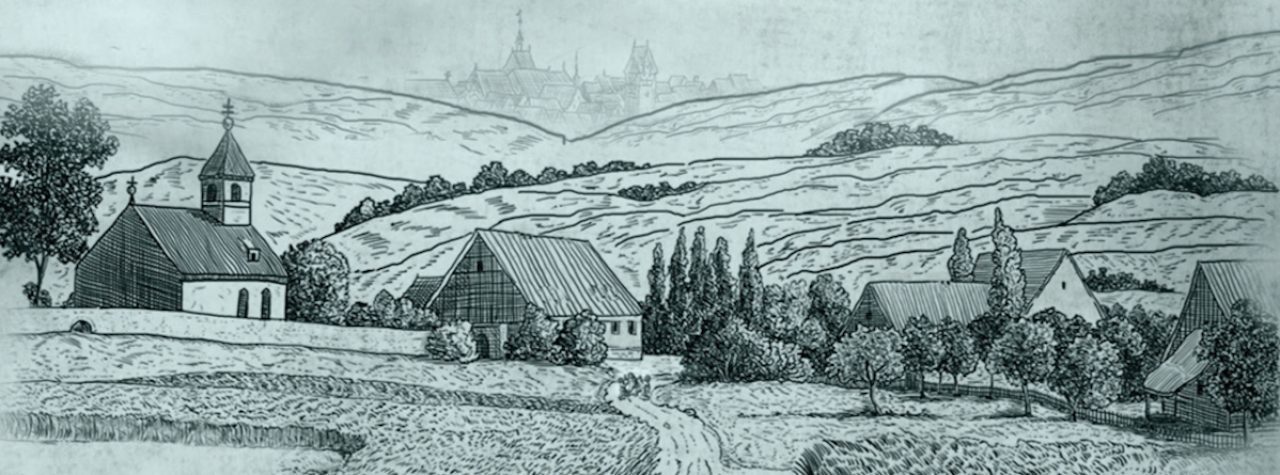Why have I decided to write a blog? Perhaps because I wanted to share some of the fascination and pleasure of the novel-writing journey that I have been undertaking these past few years.
I have been writing fiction for a long time – all my adult life, on and off, in between work and family life. But it was when I decided to study for an MA in Creative Writing that I took the first step to becoming what I now think I am – a writer of historical fiction.
Why historical fiction? Well, when I had to choose what to write as the creative piece for the MA, I chose historical fiction mostly just as a change from the contemporary women’s fiction that I had been writing. But the choice was somewhat serendipitous. For, in my twenties I had written about 10,000 words of a novel set in the fourteenth century and, by chance, I rediscovered the fading handwritten draft languishing in a box of old scribblings. Although, to be frank, the novel’s plot was pretty dire, I found myself drawn to its period and setting. The discovery gave me one of those light bulb moments and, a few days later, I was drafting an outline for the historical novel that is now called Fortune’s Wheel.
It was true that I had long been intrigued by the mediaeval period, for its relative remoteness in time and understanding, and, I think, for the very dichotomy between the present-day perception of the Middle Ages as “nasty, brutish and short” and the wonders of the period’s art and literature. I wanted to know more about the period, and, through writing an historical novel, I would have the opportunity both to discover the mediaeval past and to interpret it, to bring both learning and imagination to my writing, which is I suppose what all historical novelists do.
But what kind of story would I write? What sort of historical novel would it be?
There are so many different sub-genres of historical fiction… Yet I somehow knew that I wouldn’t write a medieval mystery, or crime, or romance, or adventure (although mystery, crime, romance and adventure would surely all play a part?). It would not be alternative history, or alternative biography, or fantasy, or time slip. But, if it were none of these, what would it be?
What does it matter, I hear you cry! Well, of course, at the beginning, it didn’t matter, but, later on in my MA, I would have to justify myself by declaring what genre of novel it was, if only for the sake of future approaches to agents and publishers, who would demand to know the answers.
However, what I did know from the start was that I wanted to try to write a “naturalistic” novel, one that portrayed the lives of mediaeval people – and in particular “ordinary” people – as naturally and “authentically” as I possibly could. (I will discuss the problems of “authenticity” in historical fiction in future blog posts.) I soon became excited by the idea of building an imaginary mediaeval English village society and populating it with a variety of interesting, albeit “ordinary”, characters.
To make a story, I would of course have to give them challenges to meet and problems to solve, private agonies to bear and public disasters to face. Nonetheless, I thought my novel would be more about the people than the events, more about their interactions with each other than the twists and turns of whatever situations I put them in.
And so it has proved to be. I sometimes think of Fortune’s Wheel as a kind of “relationship” novel, but set in the fourteenth century. It is also a novel that focuses mostly on the relationships of women, and the story is told through the voices of women. Although we do hear the words of men, it was the women’s viewpoints that interested me most, if only because women in history often do not get much opportunity to speak. And, in future Meonbridge Chronicles, the novel series of which Fortune’s Wheel is the first, it will undoubtedly again be the women of fictional Meonbridge who will be revealing their lives to us, and whose voices I hope we will all come to know.

Looking forward to reading the book! 🙂
LikeLike
As good a reason as any.
LikeLike